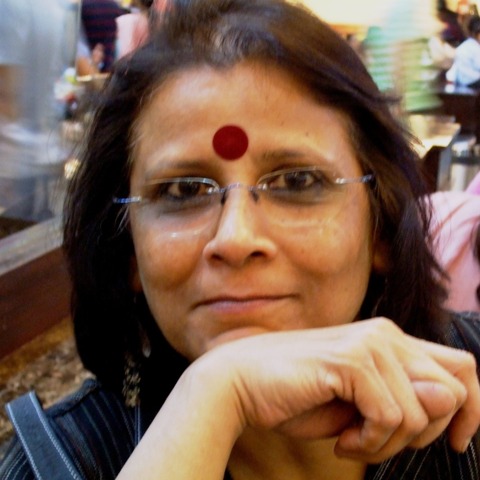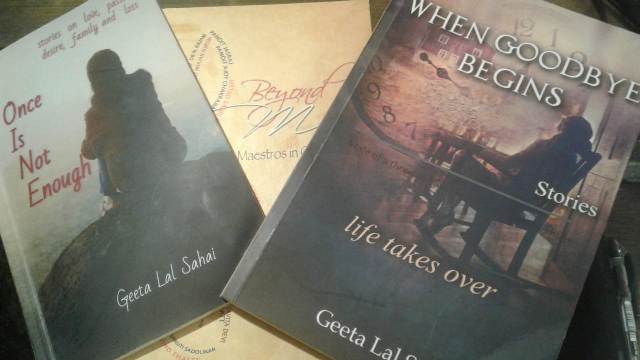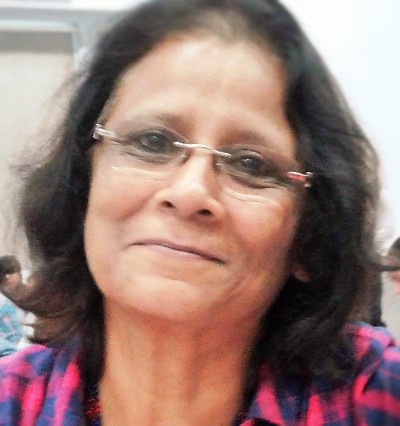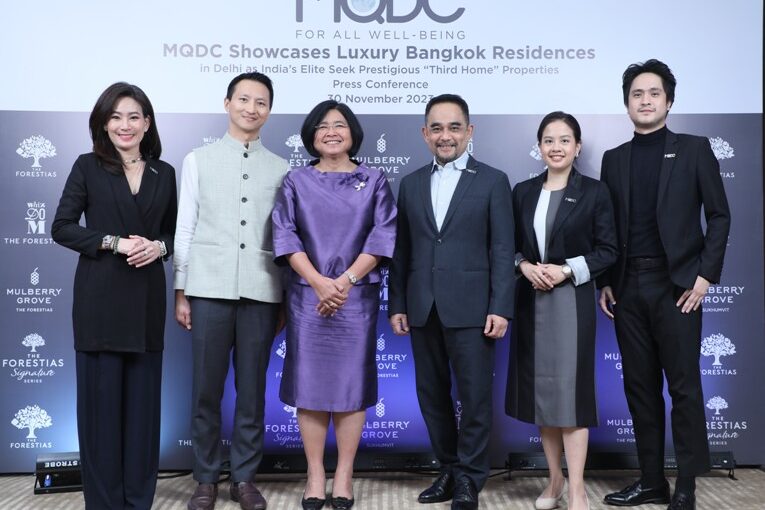

Ms Geeta Lal Sahai is a versatile author, award winner, filmmaker, journalist and advocate of social issues. Her latest book “Once Is Not Enough” has been an Amazon bestseller in the fiction category. In an interview with Business Views Editor G. Kalyan Kumar, the Delhi-based writer talks about the book, her non-fiction works, life as a filmmaker, professional experiences with reflections on contemporary issues.
Excerpts….
Geeta ji your latest book has become a best seller on Amazon, “Once is not Enough”. Tell us more about its appeal, theme, style and the main character?
Well, it is a collection of five short stories, and each story is on a different theme.
The protagonist—Rakhee, in the title story - Once is Not Enough somewhere nudges the understanding about love—that it’s complicated and isn’t always about being in love. It highlights feminine desire and passion.
In The Singer young Bhavna, blinded by her ambition, agreed to marry wealthy Ajit because she knew that her music career would burgeon with him as her partner. And it did, but she was not happy. And as she grows older, she longs for someone to give her attention, to love her. She misses being a woman. After all—we are what we are because of the choices that we make!
In the story The Birthday Cake, a little boy shares his heart-wrenching experience during the present-day global crises –COVID-19.
While Lonely Footsteps is about love, honour-killing, family secrets and tragedy, the last story in the collection -My Father is about the complex issue of caste, politics, love and acceptance of the breakdown of the gentle mental fabric, mental illness—the ghost prints left by grief and loss.
The stories in the collection are all about love, unrequited love, madness, delusion, loss, loneliness, dilemma, and of course, family.
Actual events and incidents always inspire my fiction. Some of these stories are in the first person and others in the third person. In the story The Singer, I’ve used the first person and the voice of the sutradhar within the framework of the structure. I hope readers like it.
What was the trigger for its writing, and how relevant is its theme today in the context of crumbling personal relations?
As I mentioned earlier, my stories are inspired by actual incidents. I will not tell the incidents that inspired my fiction. But a reader, I think, will be able to connect it. The happenings are contemporary. As a writer, I never give solutions. My effort is always to prick people's consciousness and raise the sensitive and complicated issues of love, ego, the world within the world, caste, communalism, stigmatisation of the family due to mental health issues, etc.
You have also made a name as a non-fiction writer, and one of your books on classical music attracted rave reviews? Can you throw some light on that book and your other non-fiction works?
Oh, yes. Beyond Music - Maestros in Conversation –contains interviews with legendary maestros, like late Pt Ravi Shankar, late Dr Gangubai Hangal, late Pt Jasraj, Ustad Amjad Ali Khan and many other legends of Hindustani classical music. It was a work of 10 years. I was Programming Head of Radio Gandharv – 24x7 Hindustani Classical Music Station on Worldspace Satellite Network. And during those ten years, I interviewed many maestros which were broadcast on Radio Gandharv. The book contains those priceless interviews where maestros have shared their known-unknown facts about their musical journey and life. The book Beyond Music contains only 25 interviews. I have around 65 interviews and soon would be coming out with the second volume of the book.
You see, I began my professional life as a journalist, so it was but natural for me to put into words my experiences as a journalist.
What makes you passionate about classical music and its pioneers?
Classical music makes me look inwards; it gives me peace in this chalti-daurati zindagi, and its meditative power transports me into another world. Besides this, I’ve received training in Kathak dance, though never performed.
Your career is diverse, with each facet shining with beams of excellence. Among all of them, what is the one that gives you the most satisfaction? Is it journalism, fiction, non-fiction, film making or NGO activism?
All. And everything is connected. My mental health endeavours are portrayed through my films and fiction. As a journalist, I write on mental health issues. There are stories within stories and tell me how many people understand what schizophrenia is or what it is to be a person with bipolar? If you ever say that any one of your family members has a mental health issue and is a patient of mental illness, people generally sympathise and walk ahead.
They have stereotypical views and perceptions, and often the family faces stigma and is shunned. Tell me, is it right? Often girls and women with mental illness are abandoned. I fight for their rights and dignity. That’s me. I’m like that.
Tell us about your career as a filmmaker? How was the entry, and what made you choose film as a medium for your works?
Films chose me when I was in class 9. Whenever I saw films, I always used to think about camera angles and script development. I was possessed and obsessed with films. Every night, I would weave a tale in my head and make my mental film. Great filmmakers like Satyajit Ray, Ritwik Ghatak, Guru Dutt, Bimal Roy and many others inspired me.

The film is a powerful medium – I realised this very early in my professional life as a journalist. Along with my post-graduation in History from Delhi University, I also did two years of the mass-communication diploma course. In the early 90s, I joined a TV channel and made many documentaries and docu-features. I always aspired and dreamt of making meaningful films, but I had to abandon the dream and put it in cold storage because life took over me.
Have you had any formal training in filmmaking? How do you choose your film subjects?
If you are asking me whether I joined FTII or not, the answer is No. Though I got the opportunity, some responsibilities created a hurdle in taking that leap. Sometimes in life, we must forget to think about the dreams and problems that life offers; otherwise, we would live in gas chambers and suffocate. We have to learn to construct new bridges, to move on with our lives. As for film themes – the daily newspaper is enough to pick up an issue.
Tell us something about your life as a social activist, especially as an activist in the mental health domain? Do you think social changes are exerting pressure and stress on individual lives?
Let me first correct you. I’m not an activist but a campaigner. Too many negative connotations surround the word activist. I highlight the problems, pricking the consciousness of people to think and change their perspective. For this, I make use of films, writings and social media. Art, any creative art, has a lot to do with emotional quotient and balance. Some time ago, I made a film – I Remember – presently streaming on Hotstar-Disney- highlighting the fragilities of the human mind and relationships. The film went on to win many awards. Earlier I made many short films on mental illness.
If my work succeeds in changing the perception of even a single person from sympathy to empathy, my job is done – I think so. Talking about the present times, the COVID times, yes, certainly it has impacted individuals' mental well-being considerably. It has indeed broken down the mental, social and economic fabric. And it is during such times, we need the soothing taans of the tanpura to calm our nerves and develop an empathetic outlook.
Is social commitment essential for writers and artists?
Let me ask you a question. Who becomes a writer or an artist? I think any creative person survives on two things – belief and hope. It is the commitment to a cause that makes an artist. An artist goes beyond what is visible, captures the people's sentiments and grief and raises a voice about and against it through their creations. Let me take the liberty of quoting a few lines from the poem of great poet Dushyant Kumar –
Mere dil pe haath rakho,
meri bebasi ko samjho,
main idhar se ban rahan hoon,
main udhar se dheh rahan hoon…
The life of a creative person is like this. We fight for a cause, and somewhere, the reality keeps shattering us.
You have won many awards; which one is dearer to your heart?
All… All are unique, valuable, precious and motivate me to get up after every setback.
The livelihood of writers is a lively topic. Are the earnings that average to best writers win can sustain them?
Honestly speaking – a big no. I think it is challenging for a writer to live on one’s writings merely. Some are lucky to have an inheritance or somebody to support them or if the lady luck constantly showers love.
Do you think there is a need for writer’s grants as in the west to get good projects out?
No doubt about that. If you want good literature to see the sunshine, writers’ grants, fellowships are the solutions.
Finally, what is your message to all writers, especially the younger ones?
I’m sorry. I hate taking advice and giving too. I can only tell, write what your heart says and keep on writing…writing…writing. Let me quote Ryan Holiday – “Art is the kind of marathon where you cross the finish line and instead of getting a medal…volunteers grab you by the neck and walk you over to the starting line of another marathon.” Thank you.



